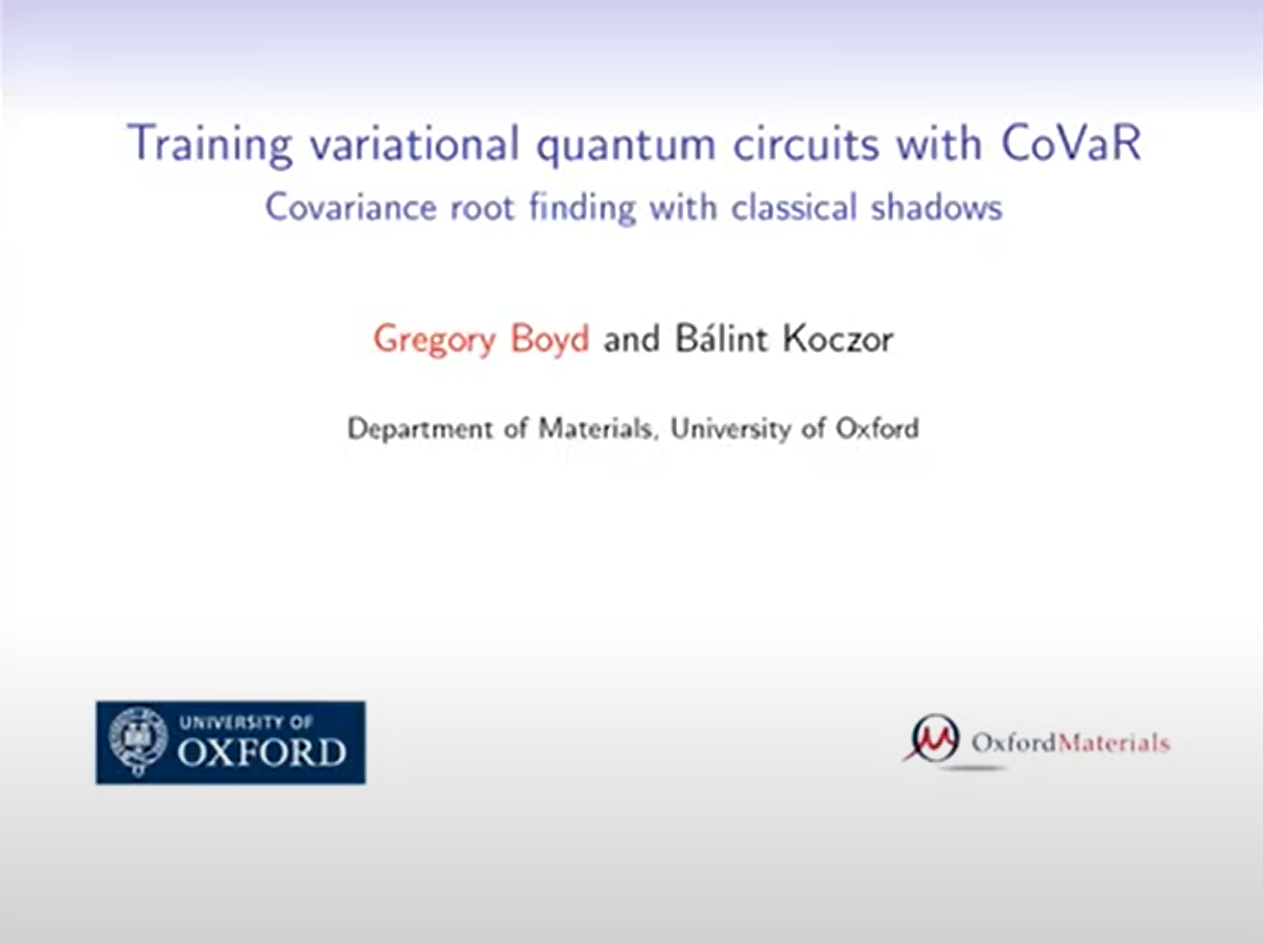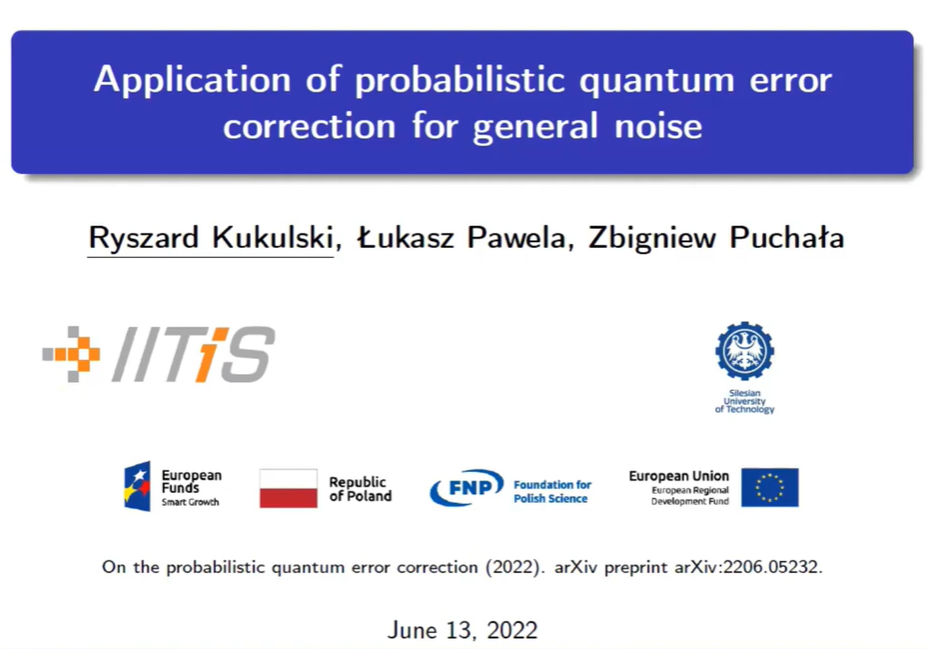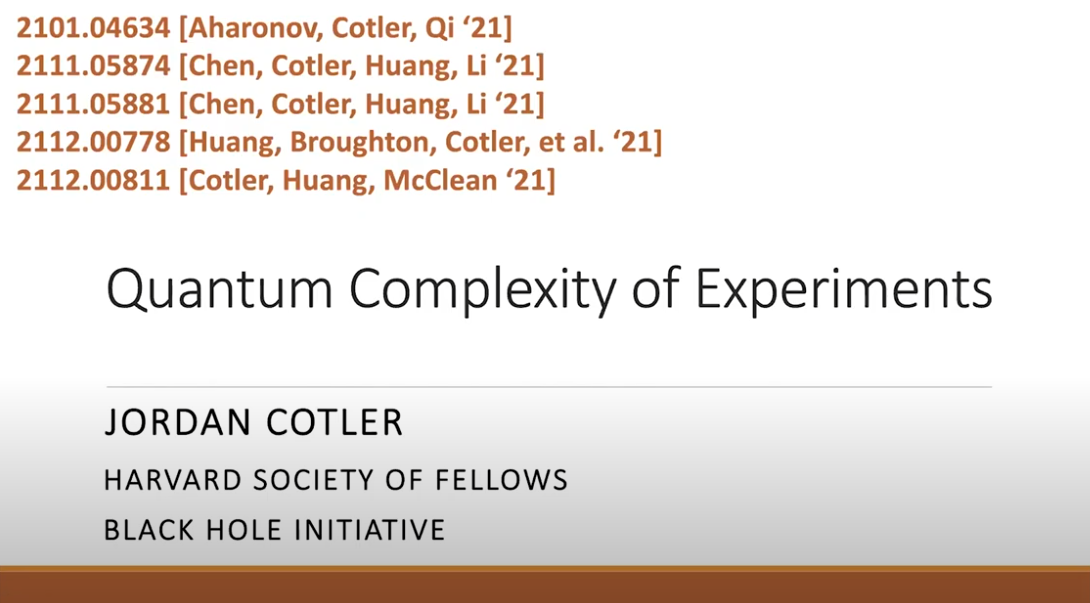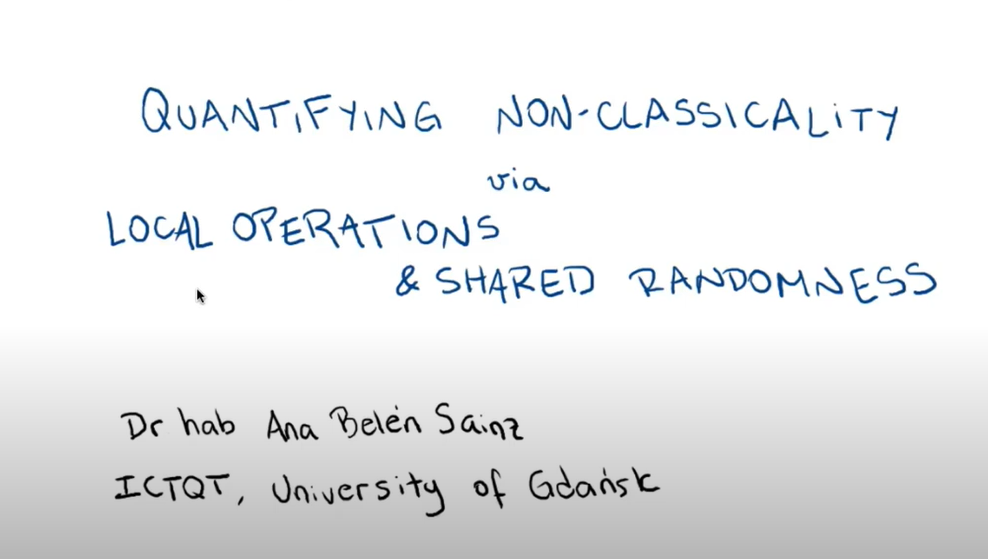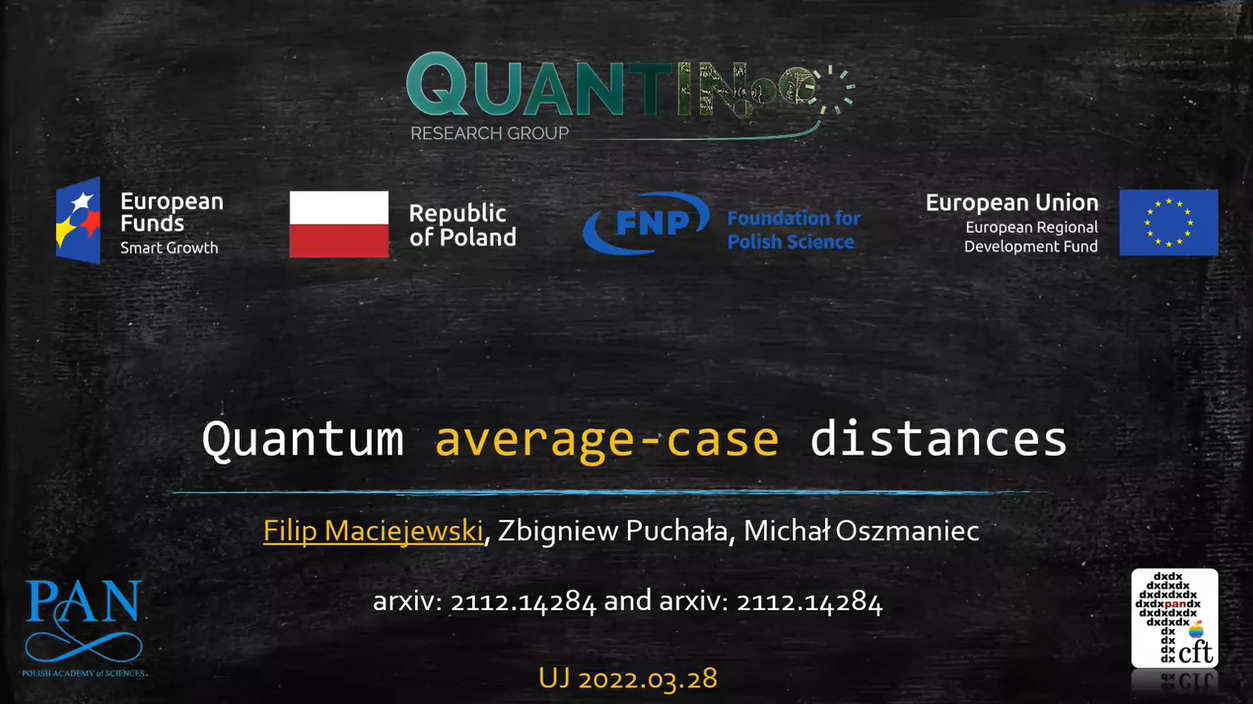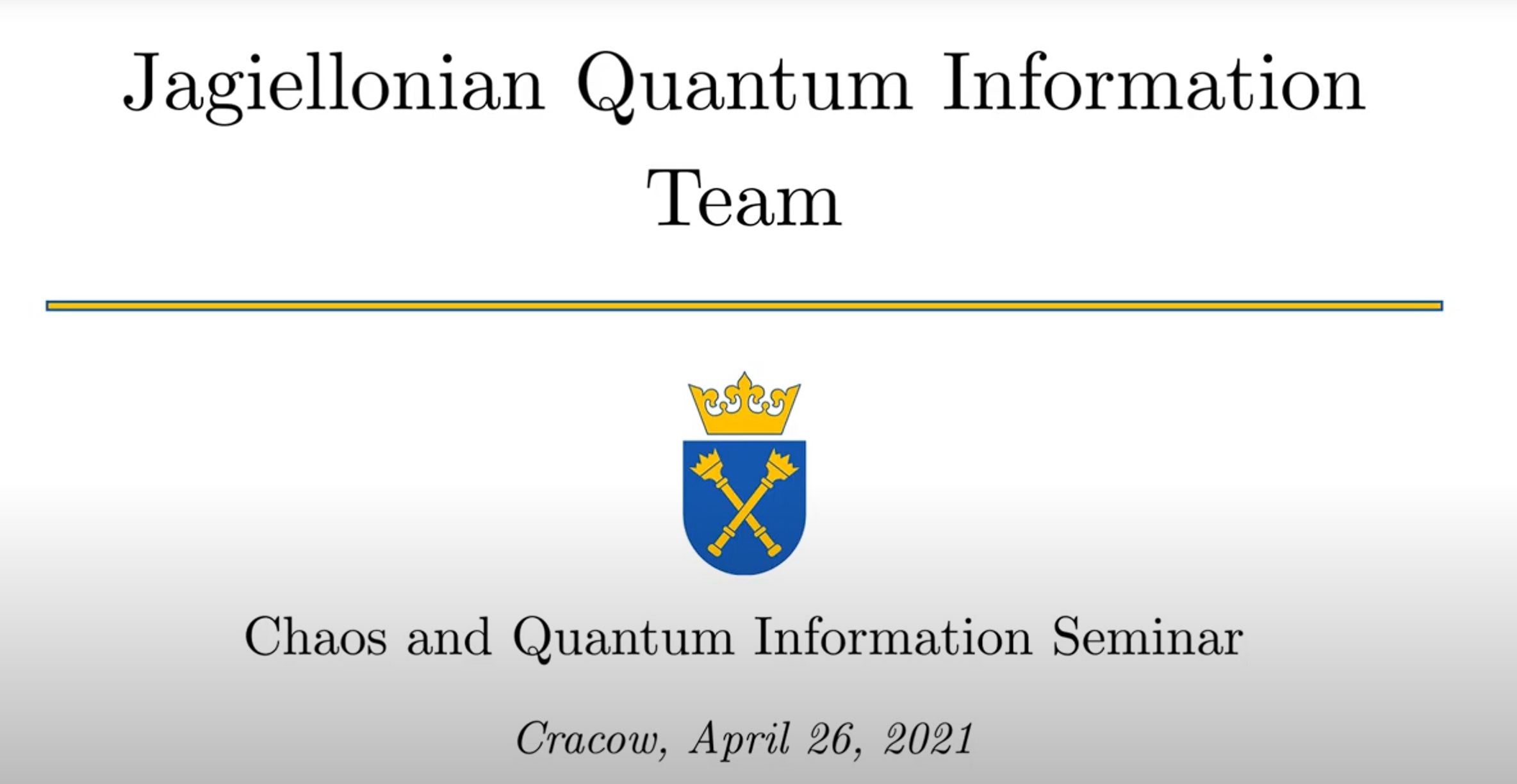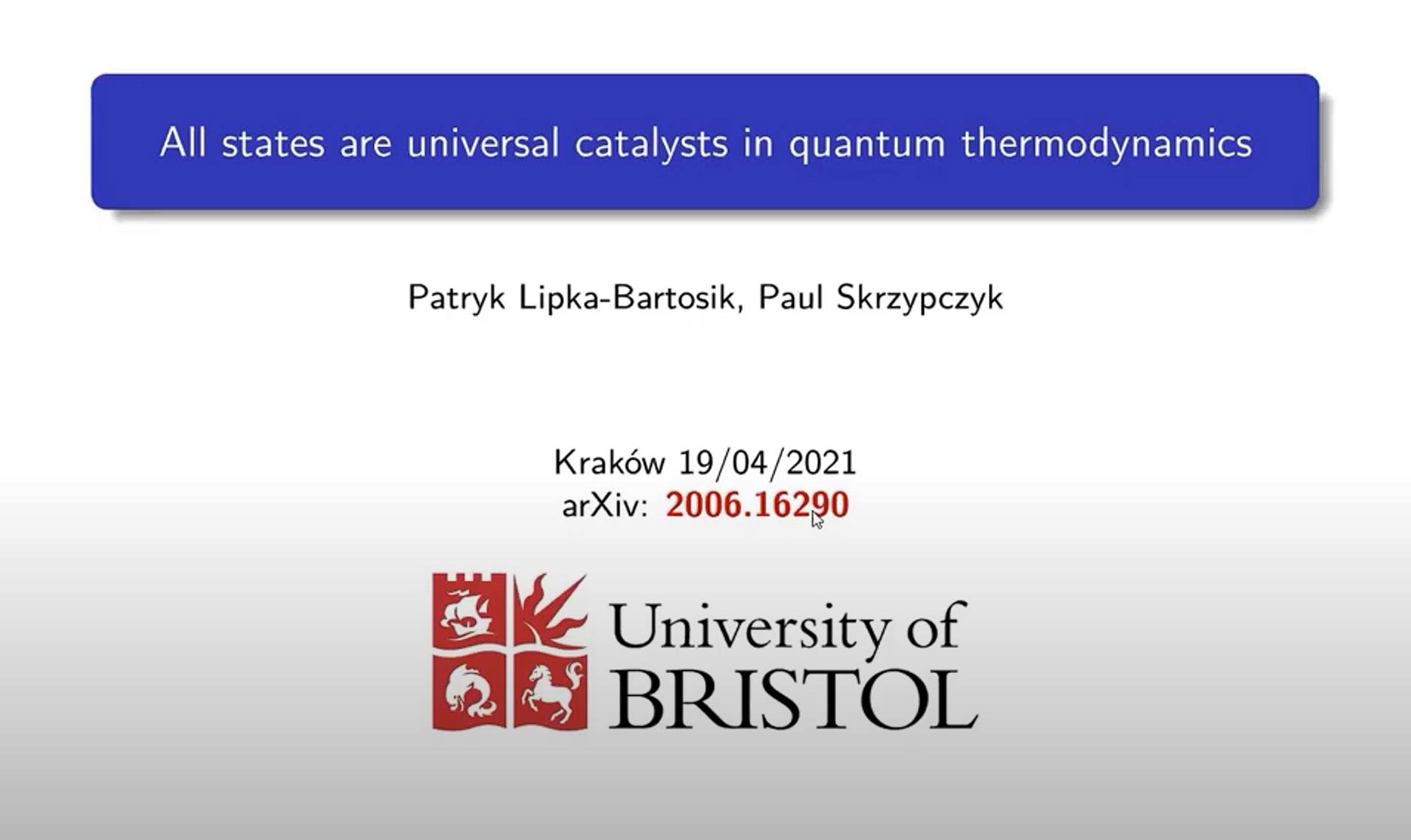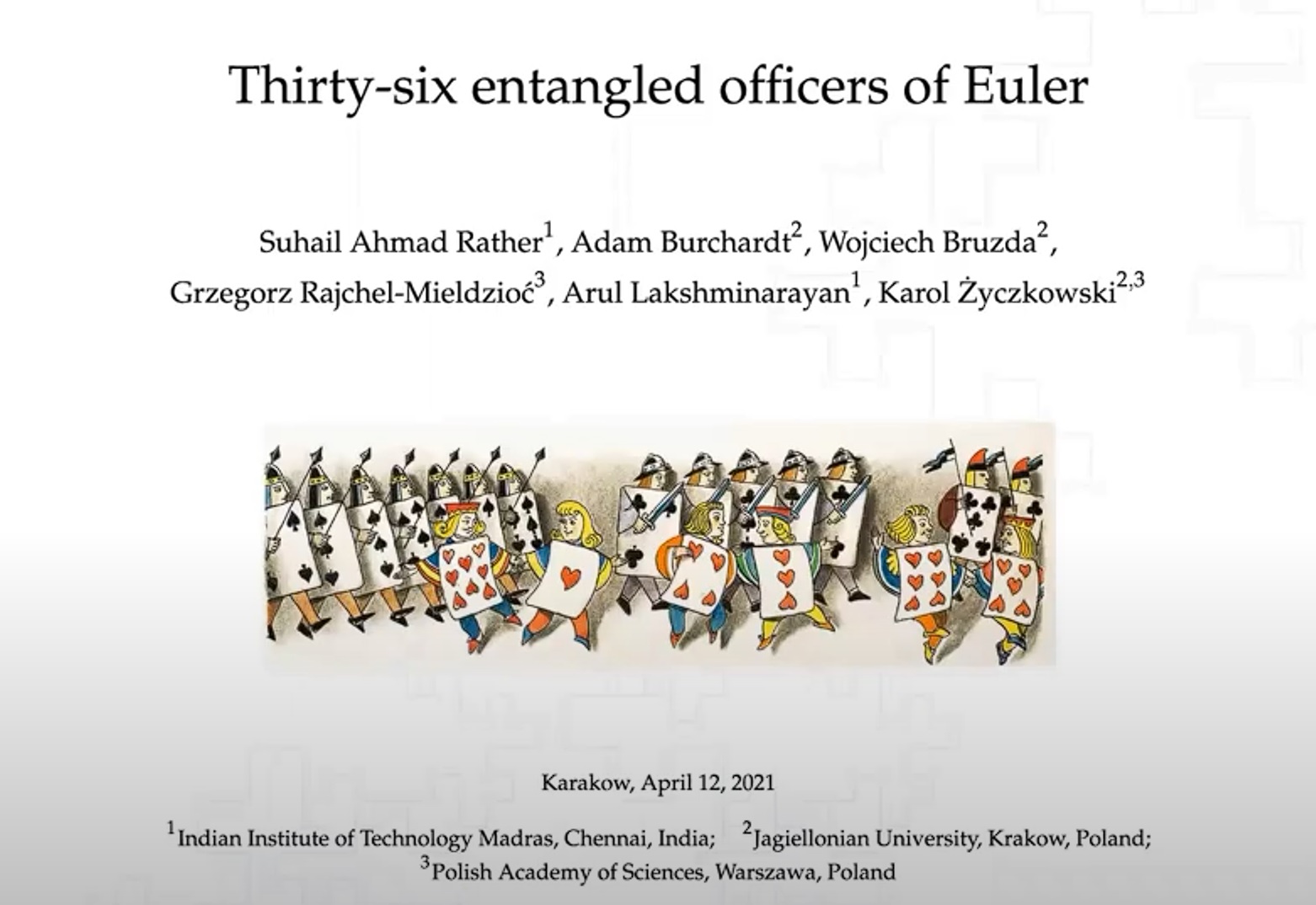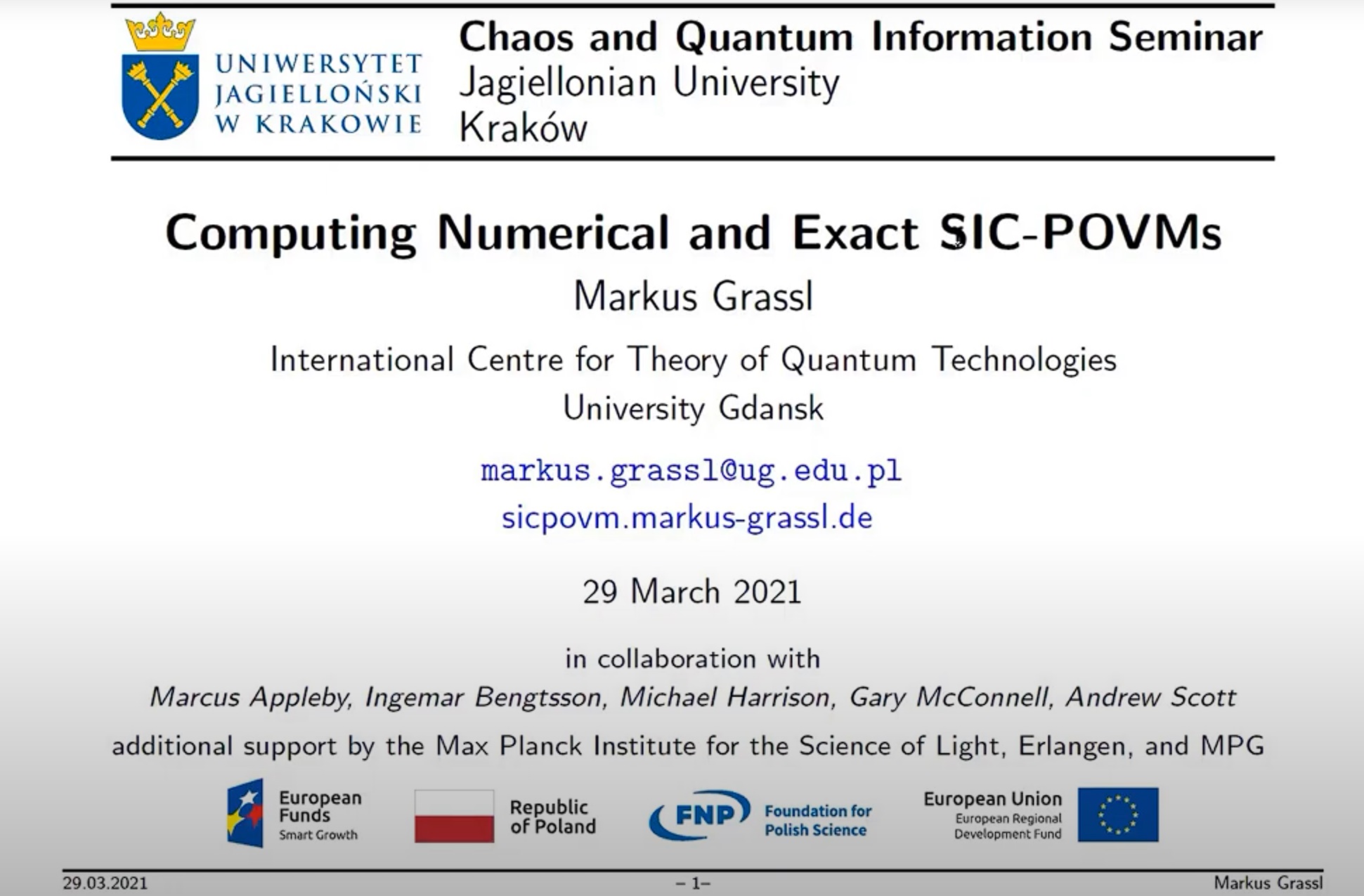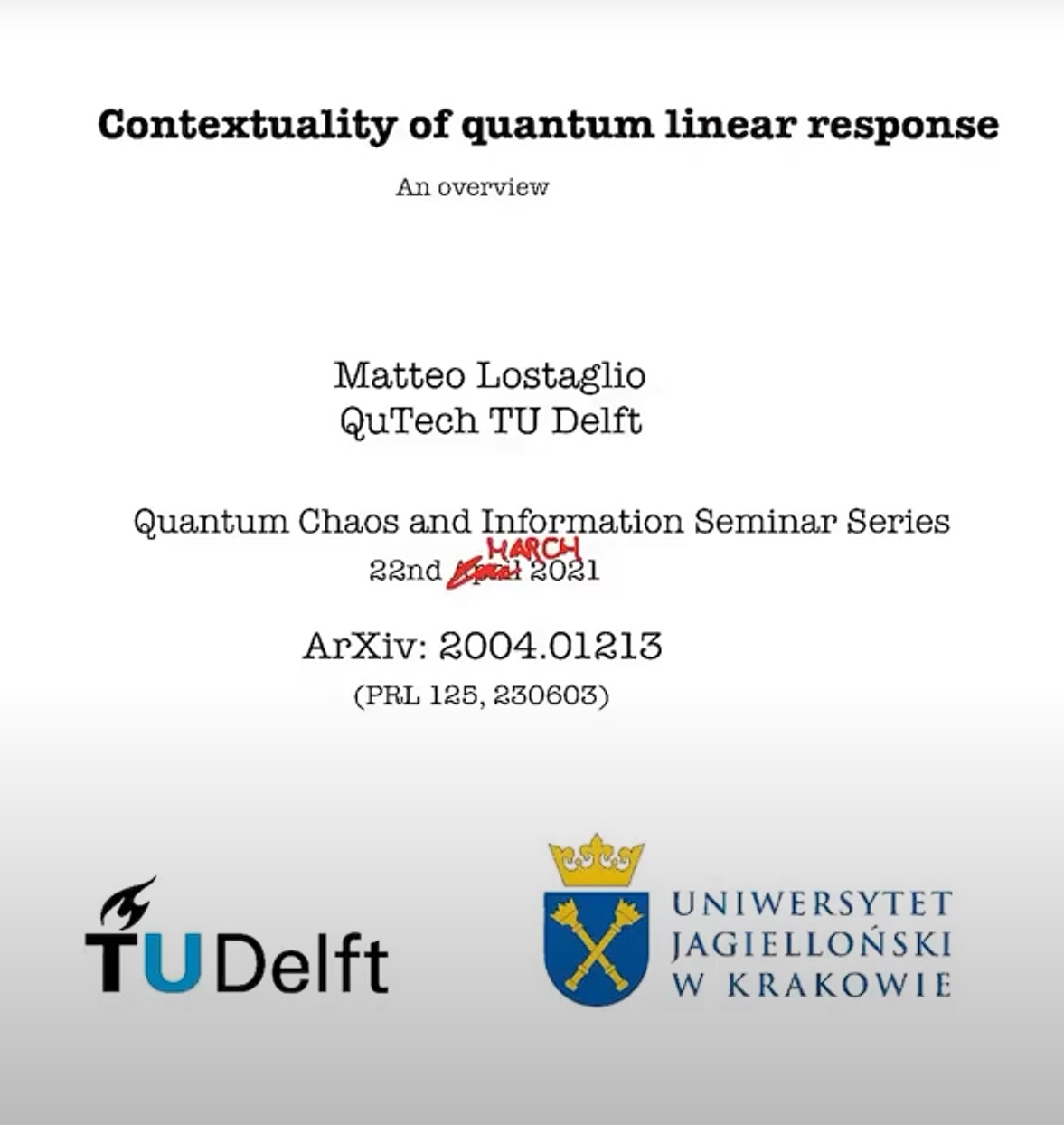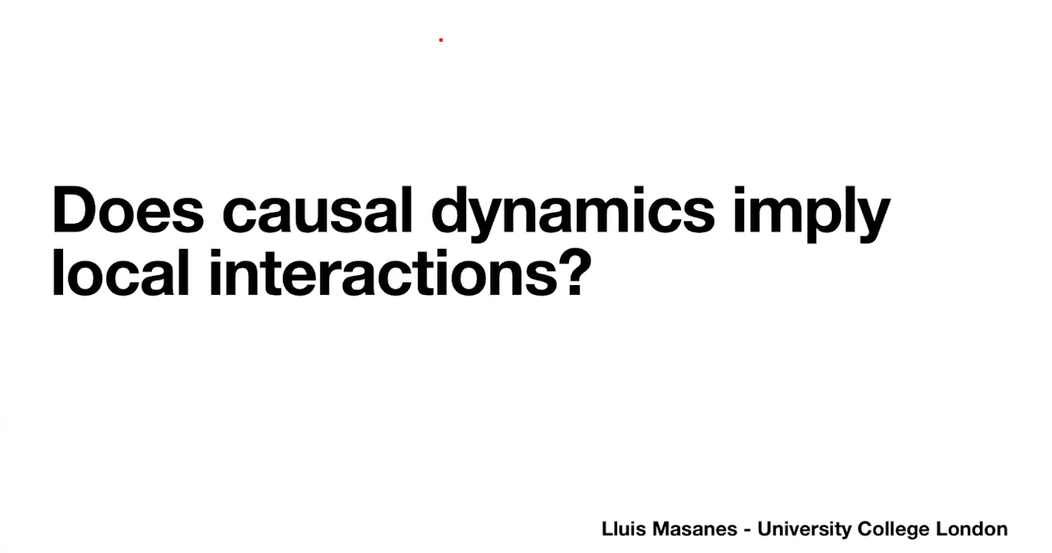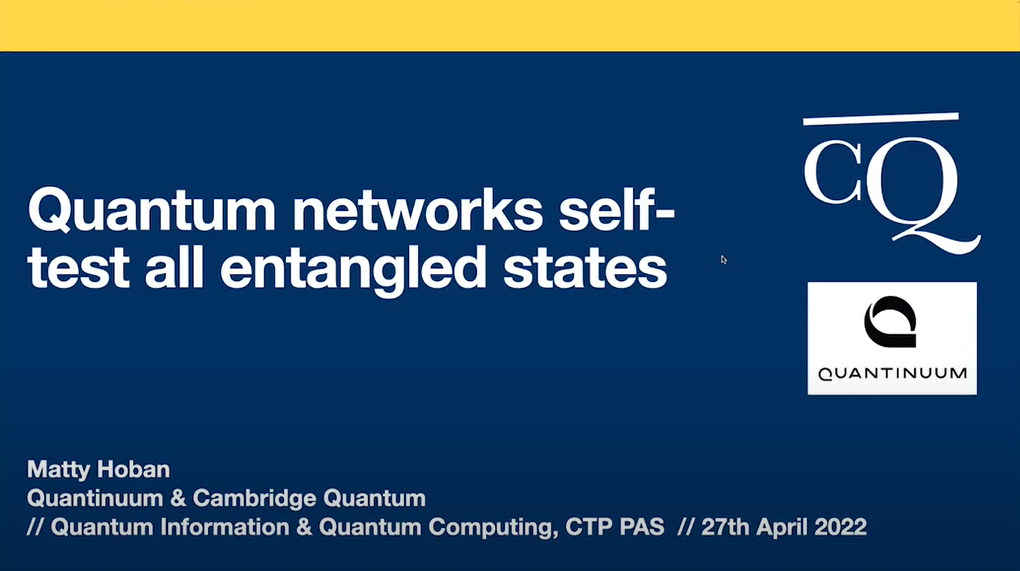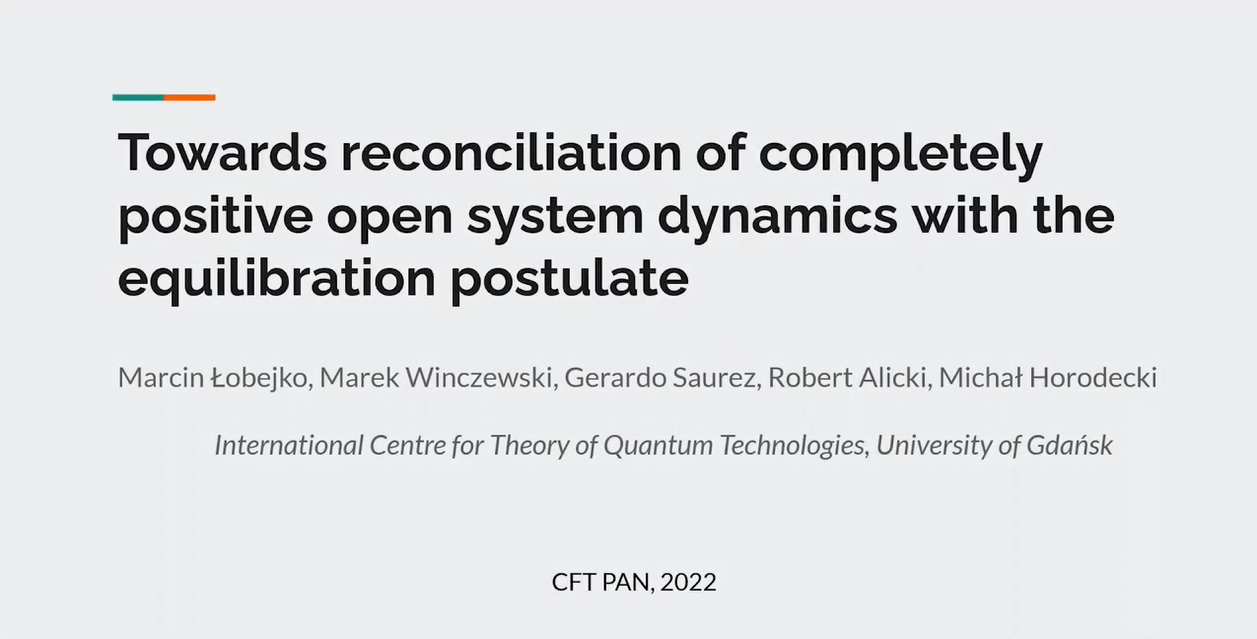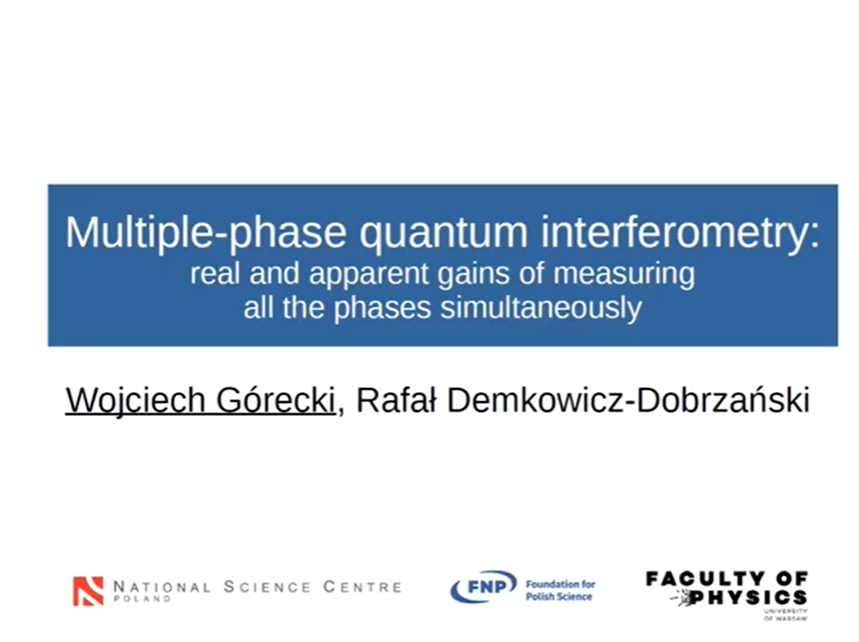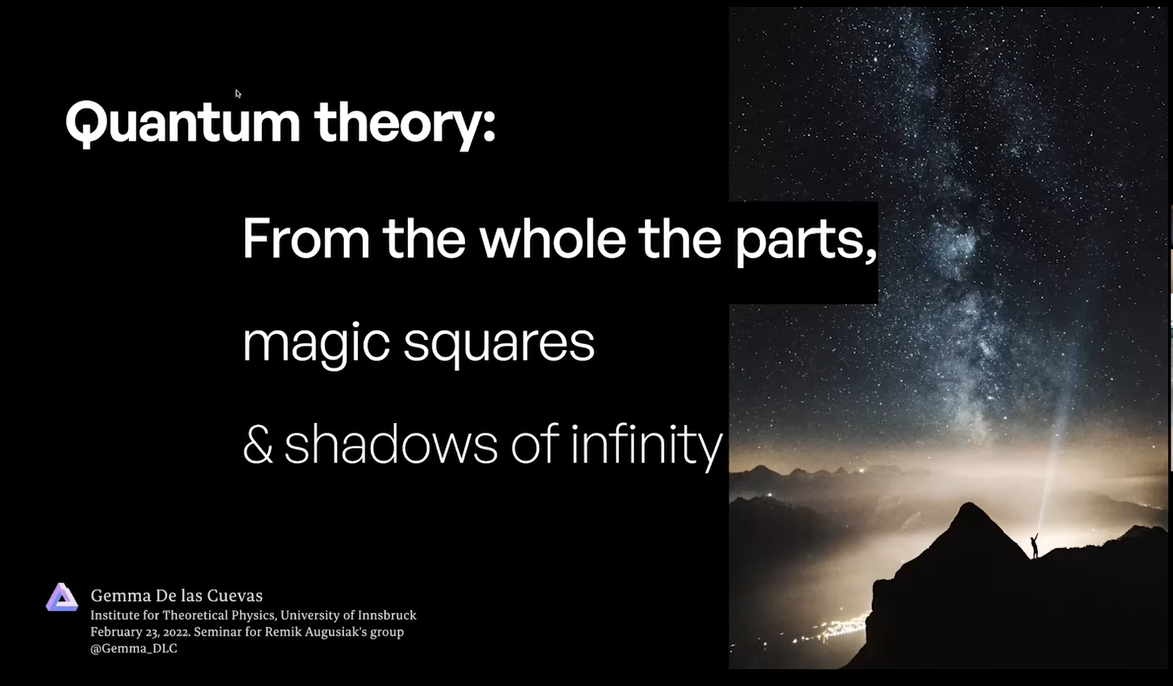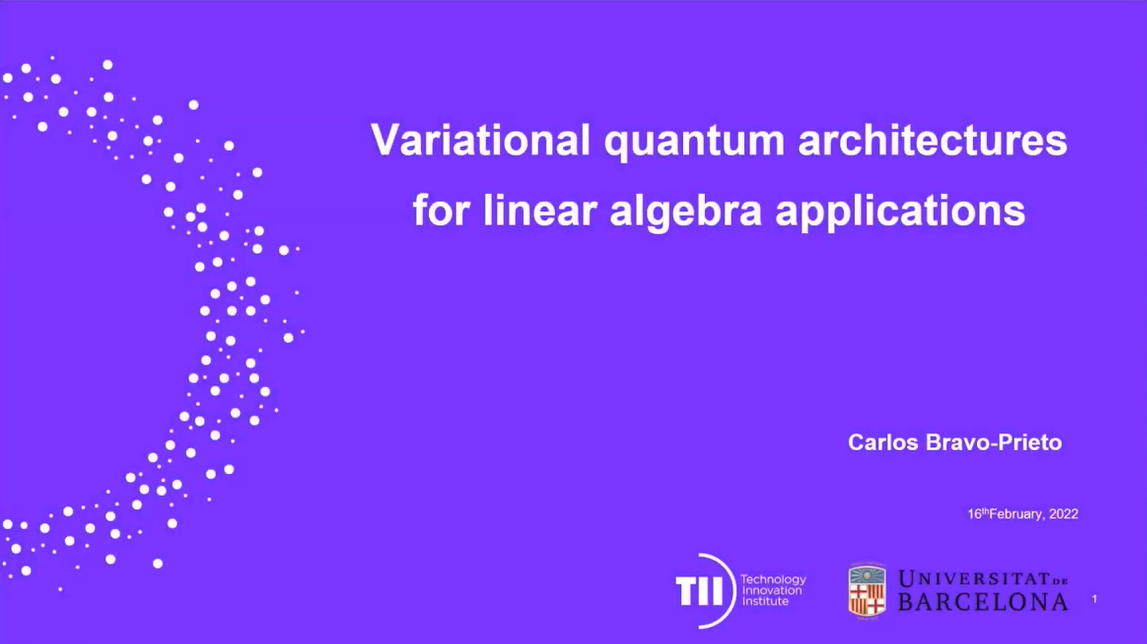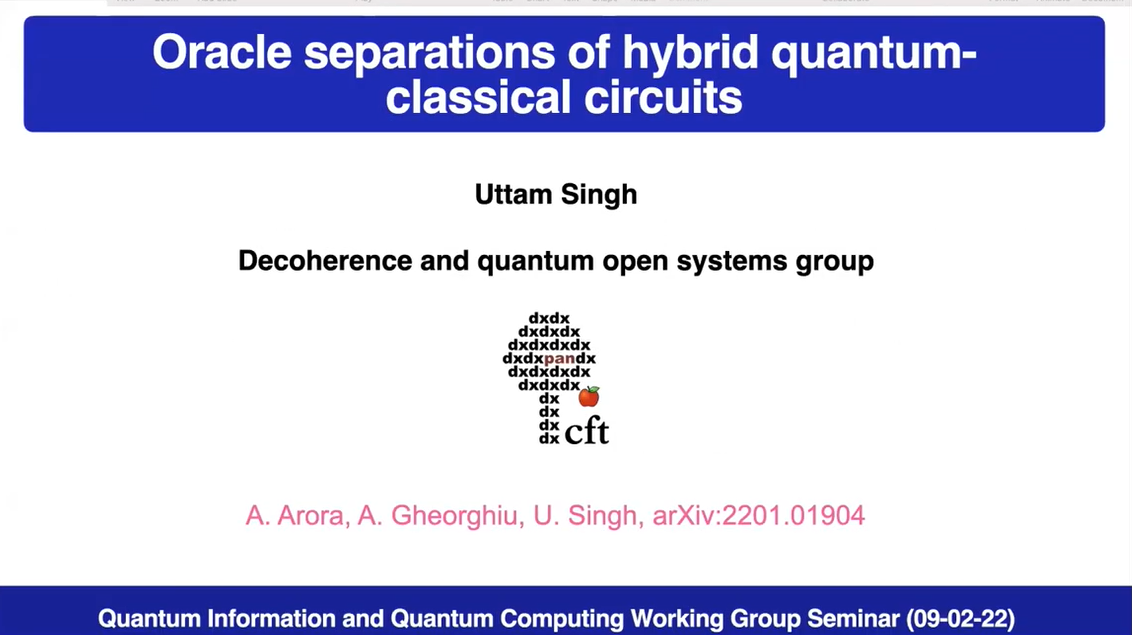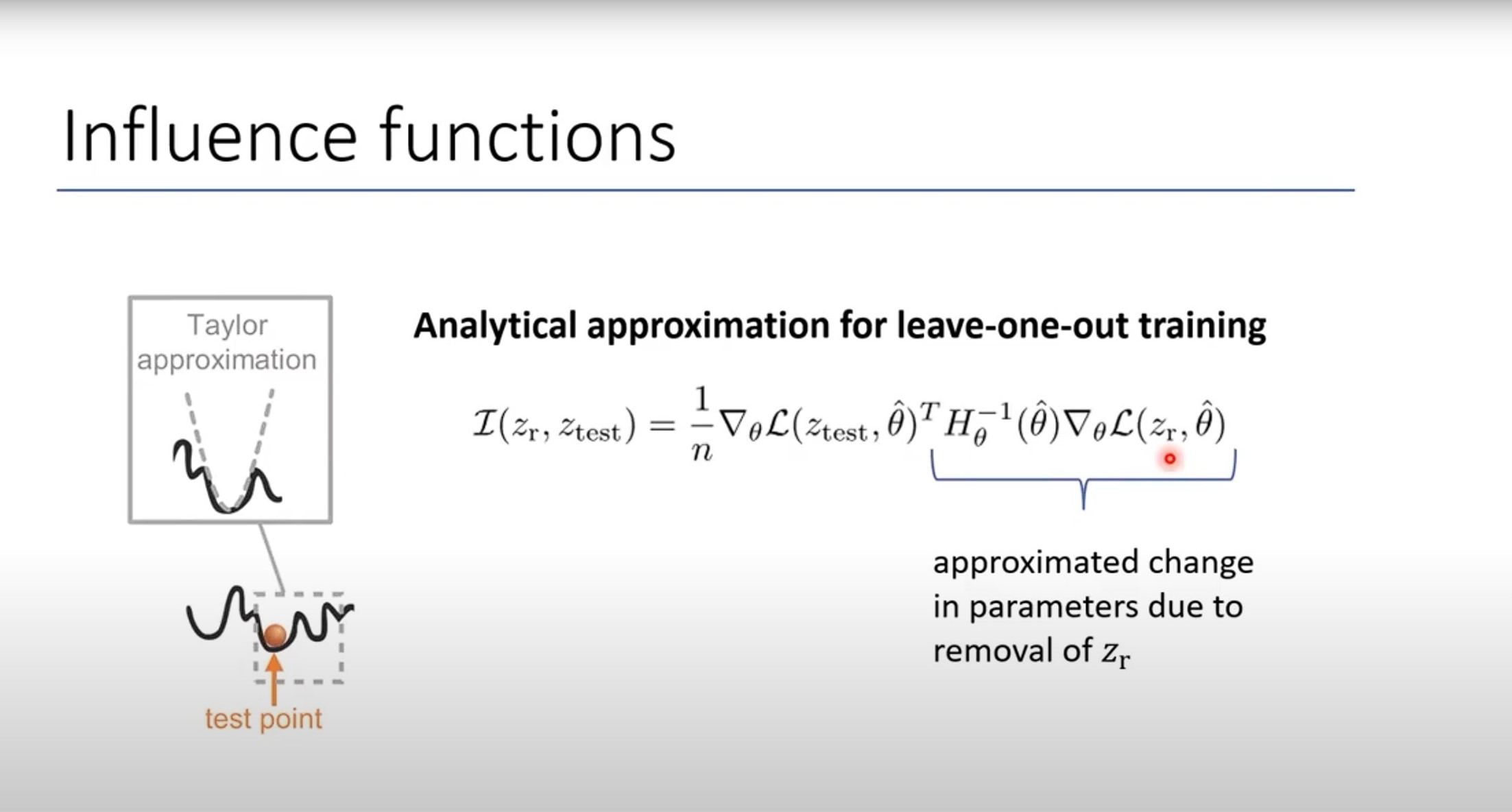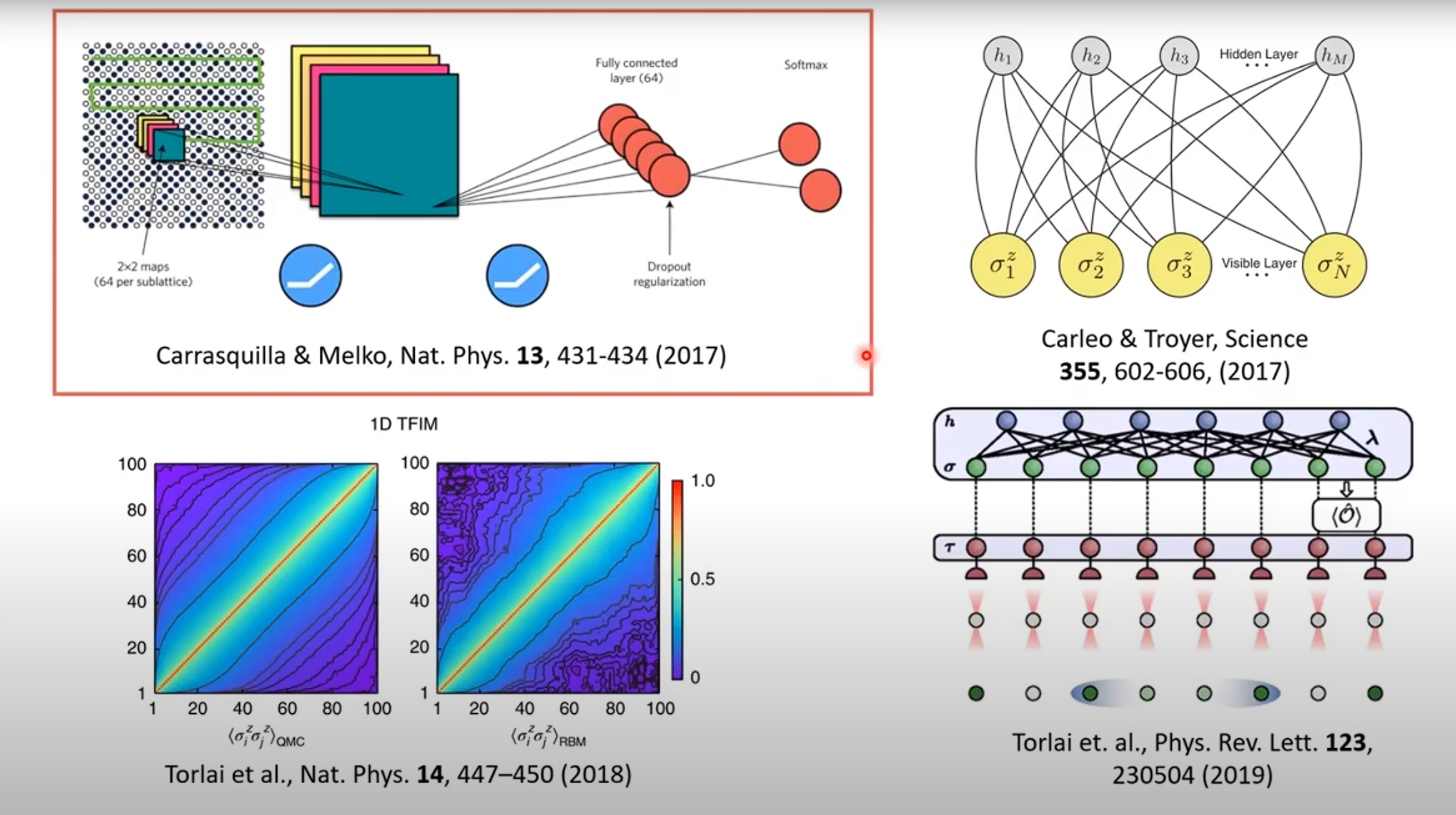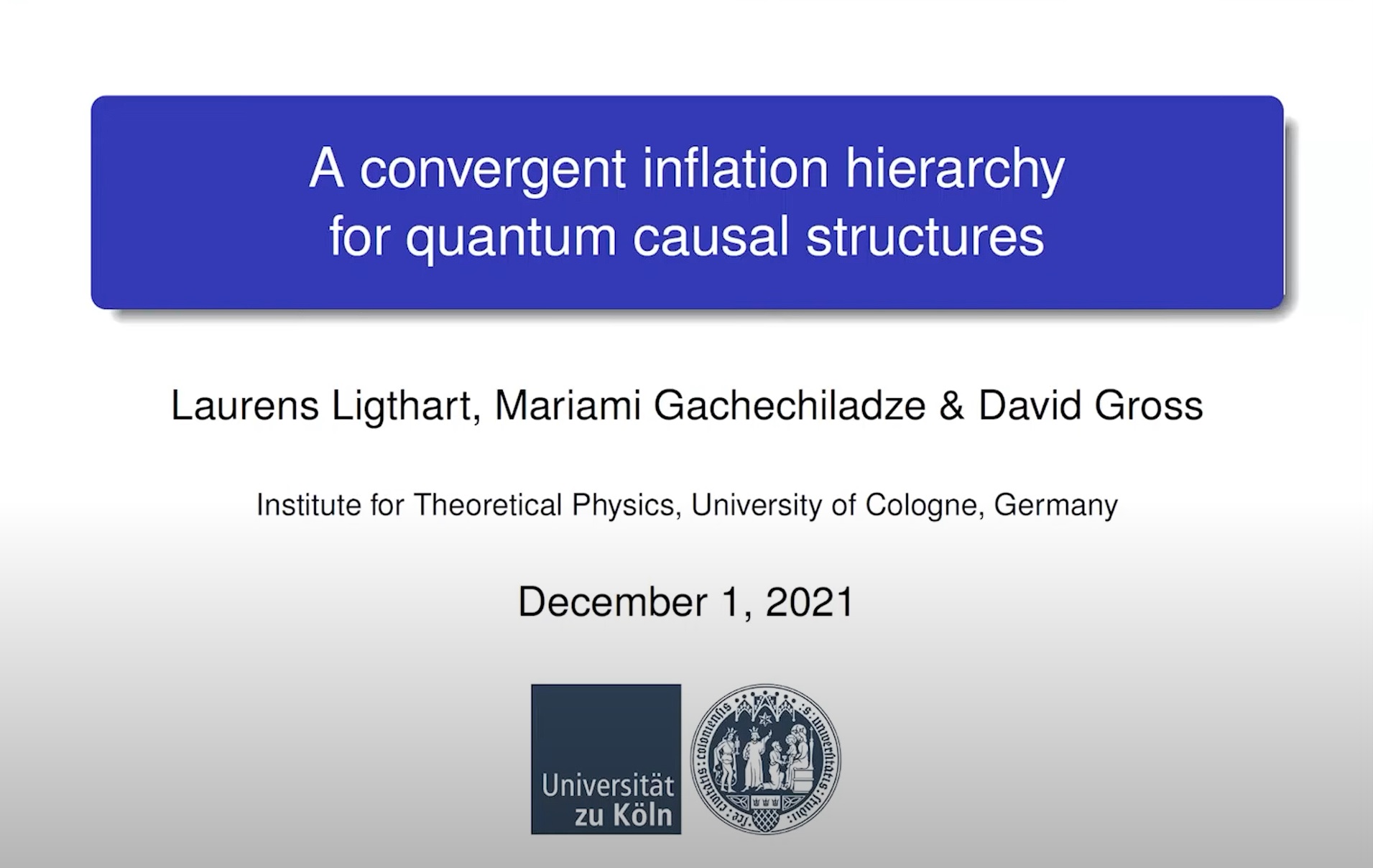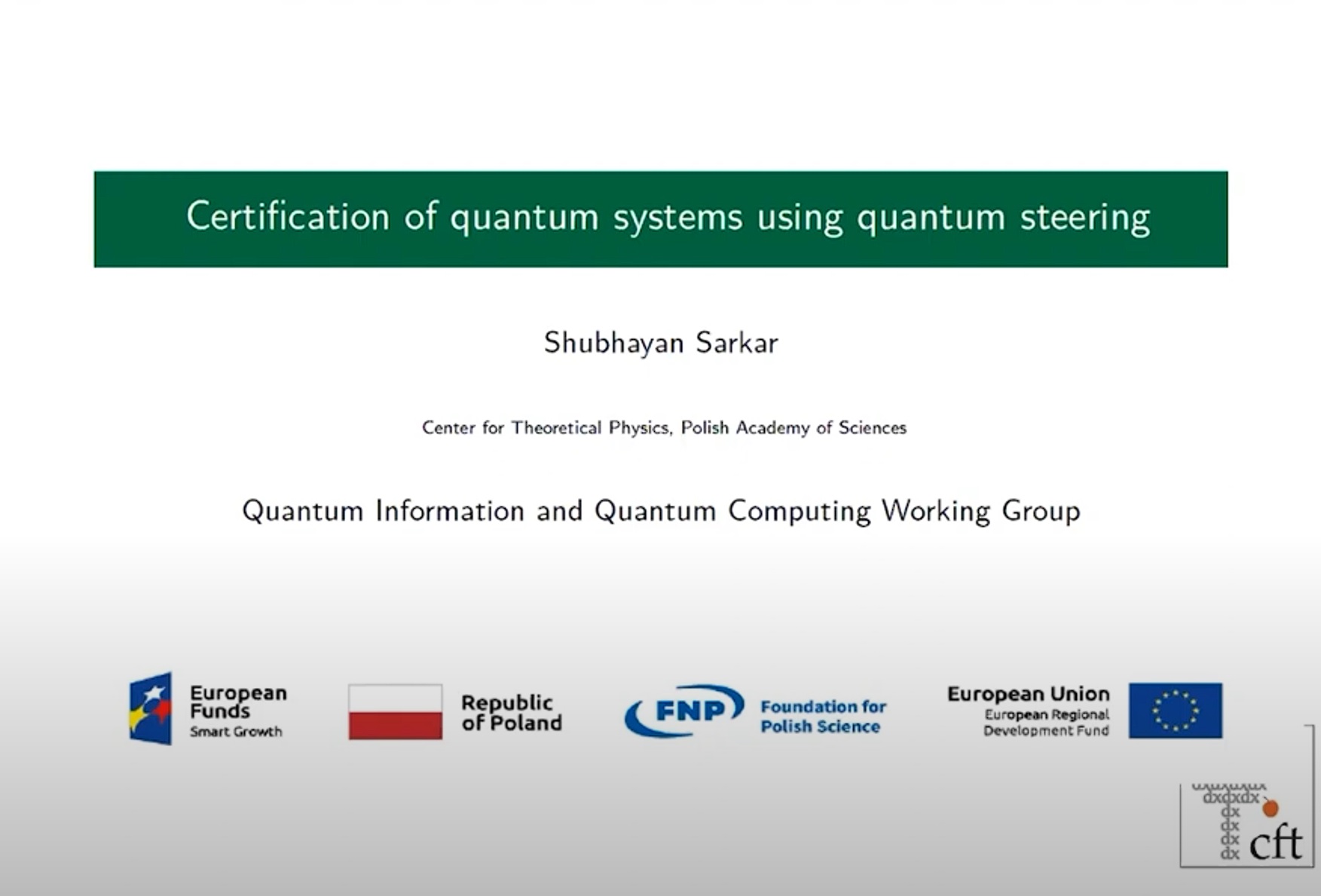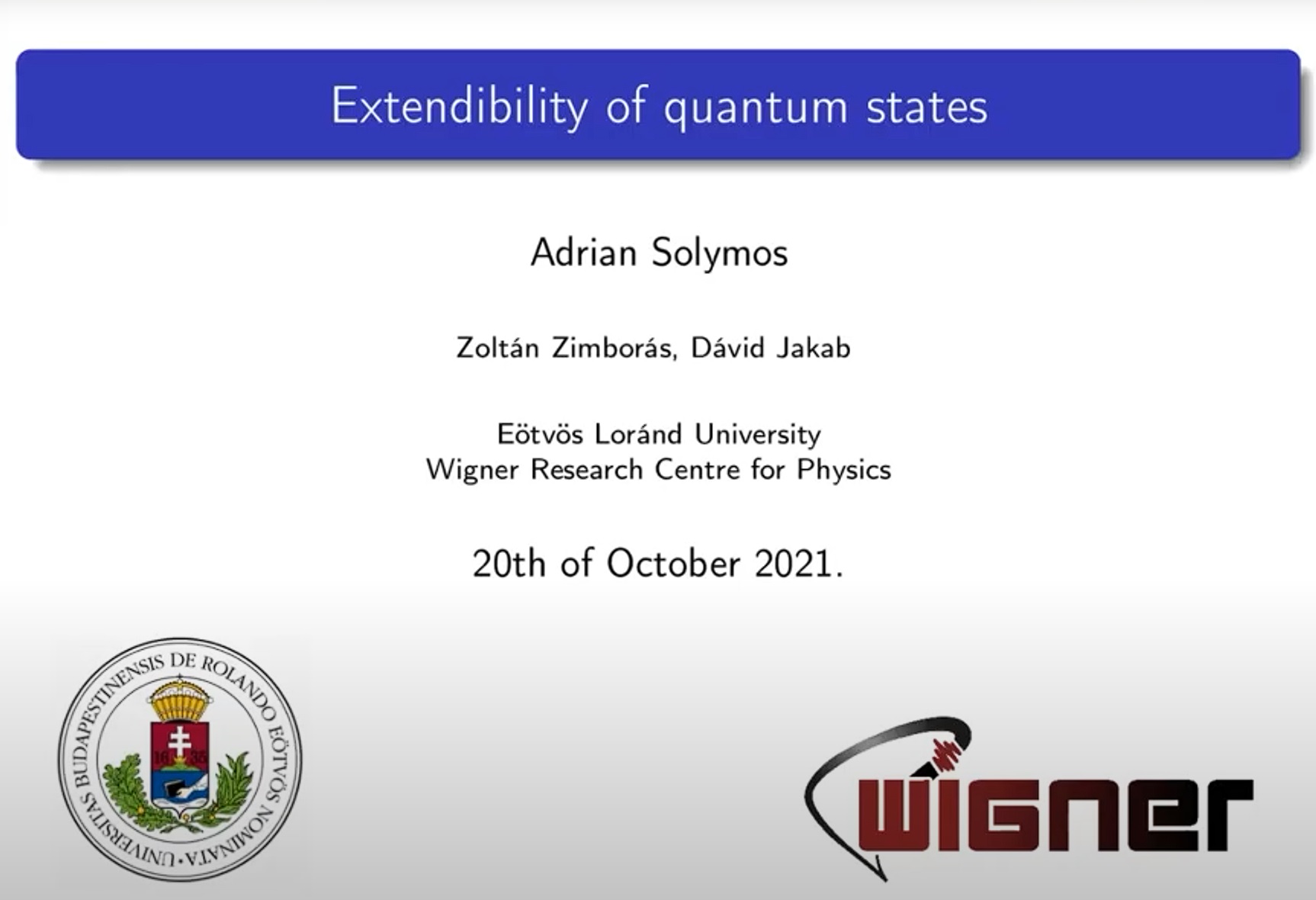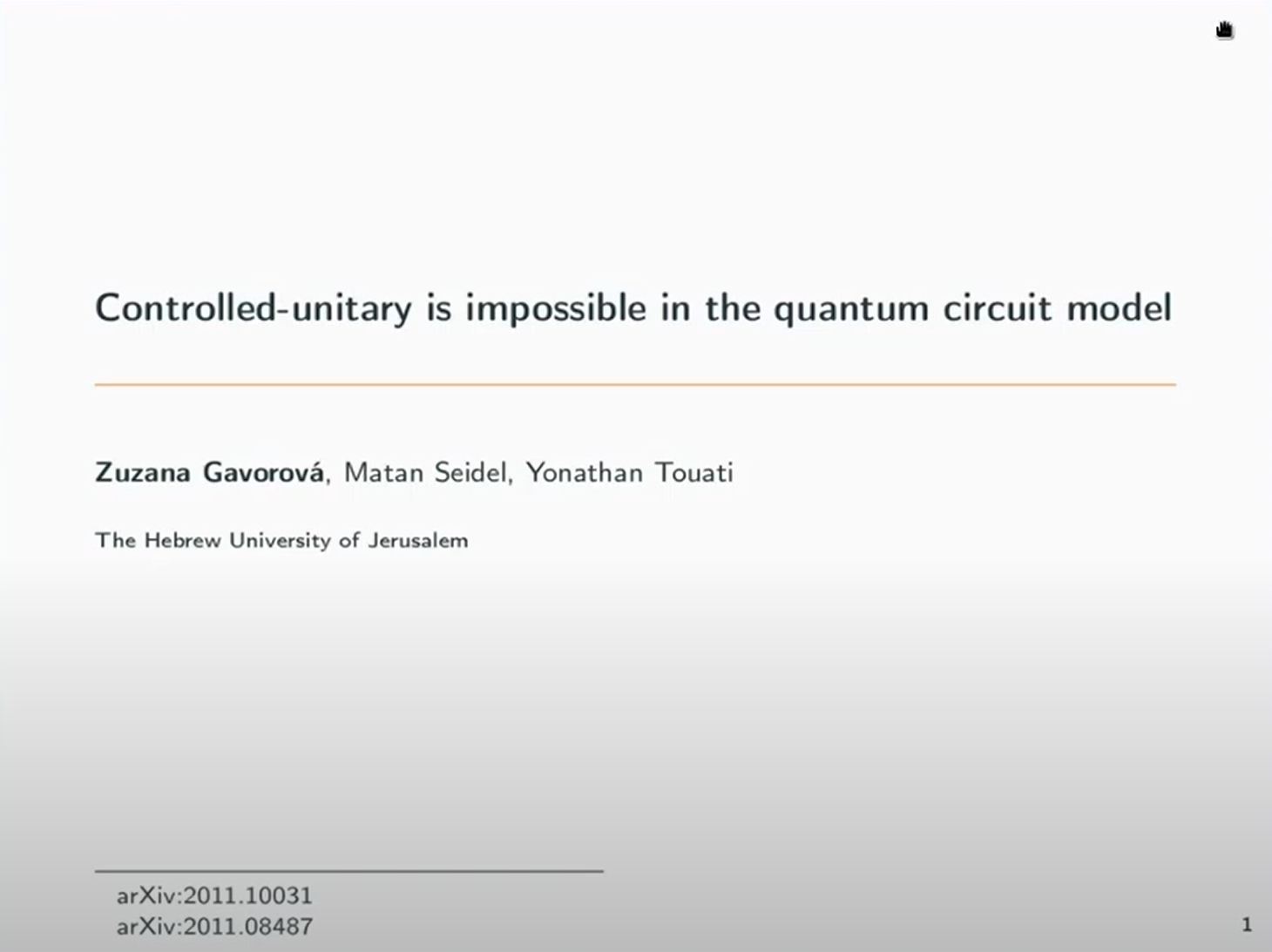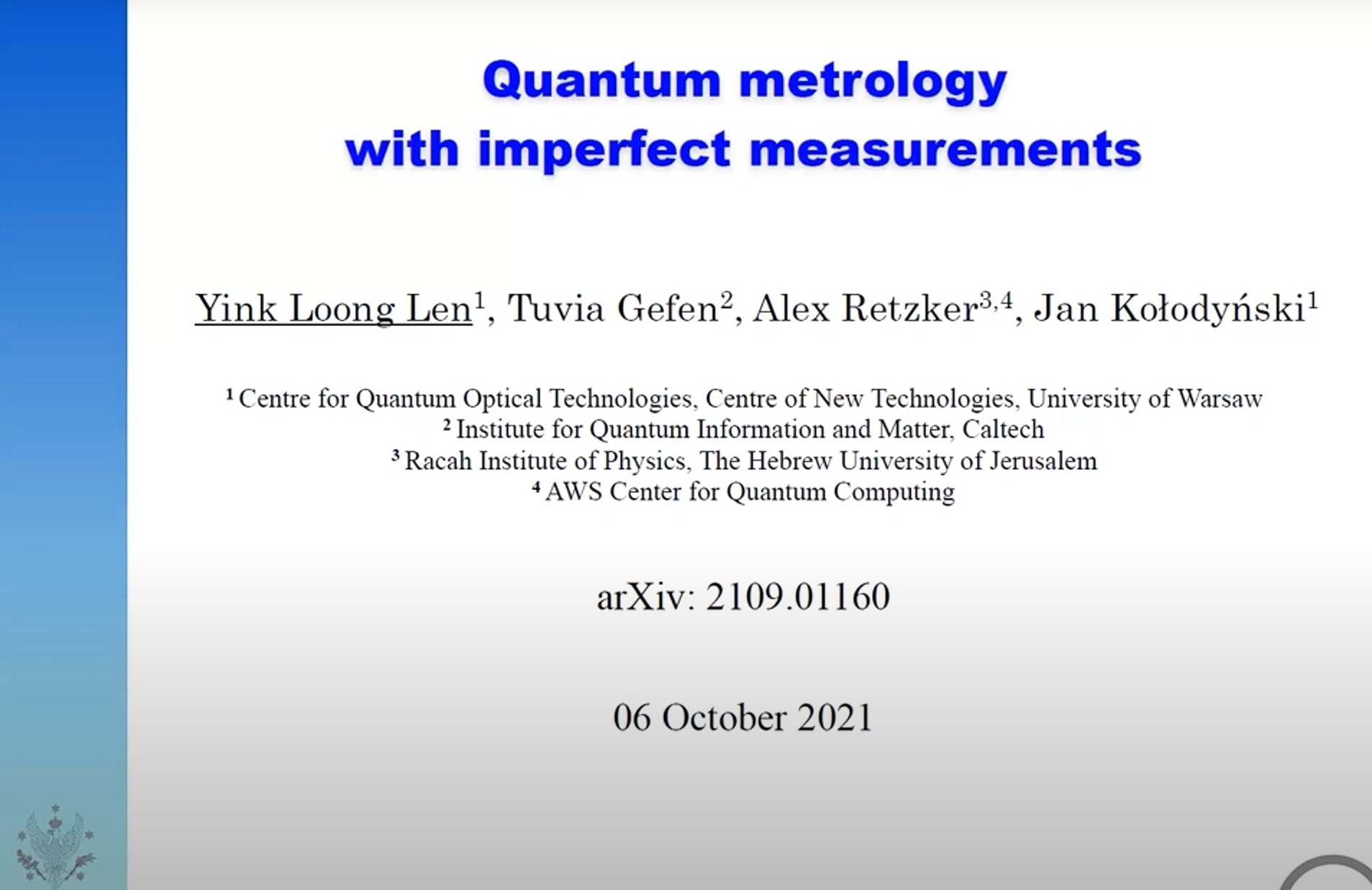Giulio Chiribella (University of Hong Kong): Optimal programming of quantum gates
Team-Net Quantum Computing Colloquium
A universal quantum processor is a device that can approximately implement any desired quantum gate on a given system. The specification of the desired gate is provided by a program, which in most implementations of quantum computing consists of classical data. From the foundational point of view, however, it is interesting to explore the more general scenario where the program is itself a quantum system. In the past two decades, a major open question has been to determine how the size of the smallest quantum program scales with the required accuracy in the implementation of the desired gate. Here we answer the question, by proving a bound on the size of the program and designing a concrete protocol that attains the bound in the asymptotic limit. Our result is based the representation theory of the special unitary group. It provides improved bounds on the estimation of unitary gates, and on the implementation of quantum protocols subject to conservation laws.
Other seminars
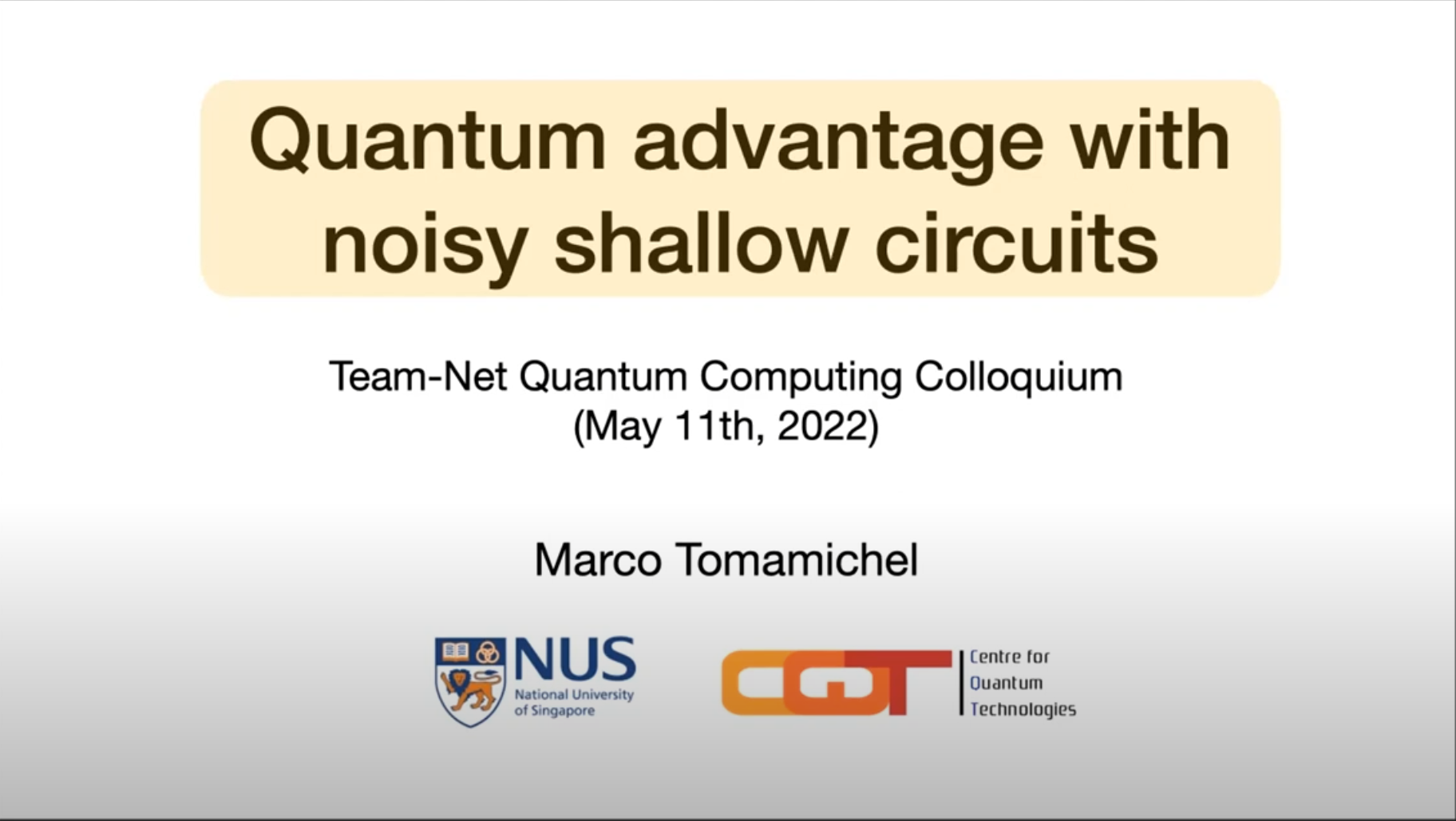
Marco Tomamichel (National University of Singapore): Quantum advantage with noisy shallow circuits17-05-2022
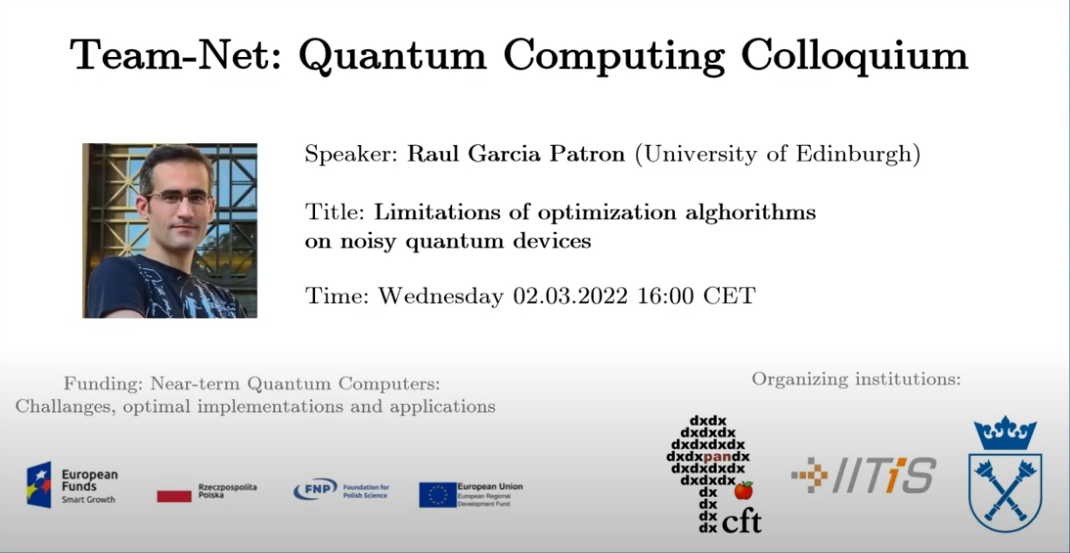
R. Patron (University of Edinburgh): Limitations of optimization algorithms on noisy quantum devices02-03-2022
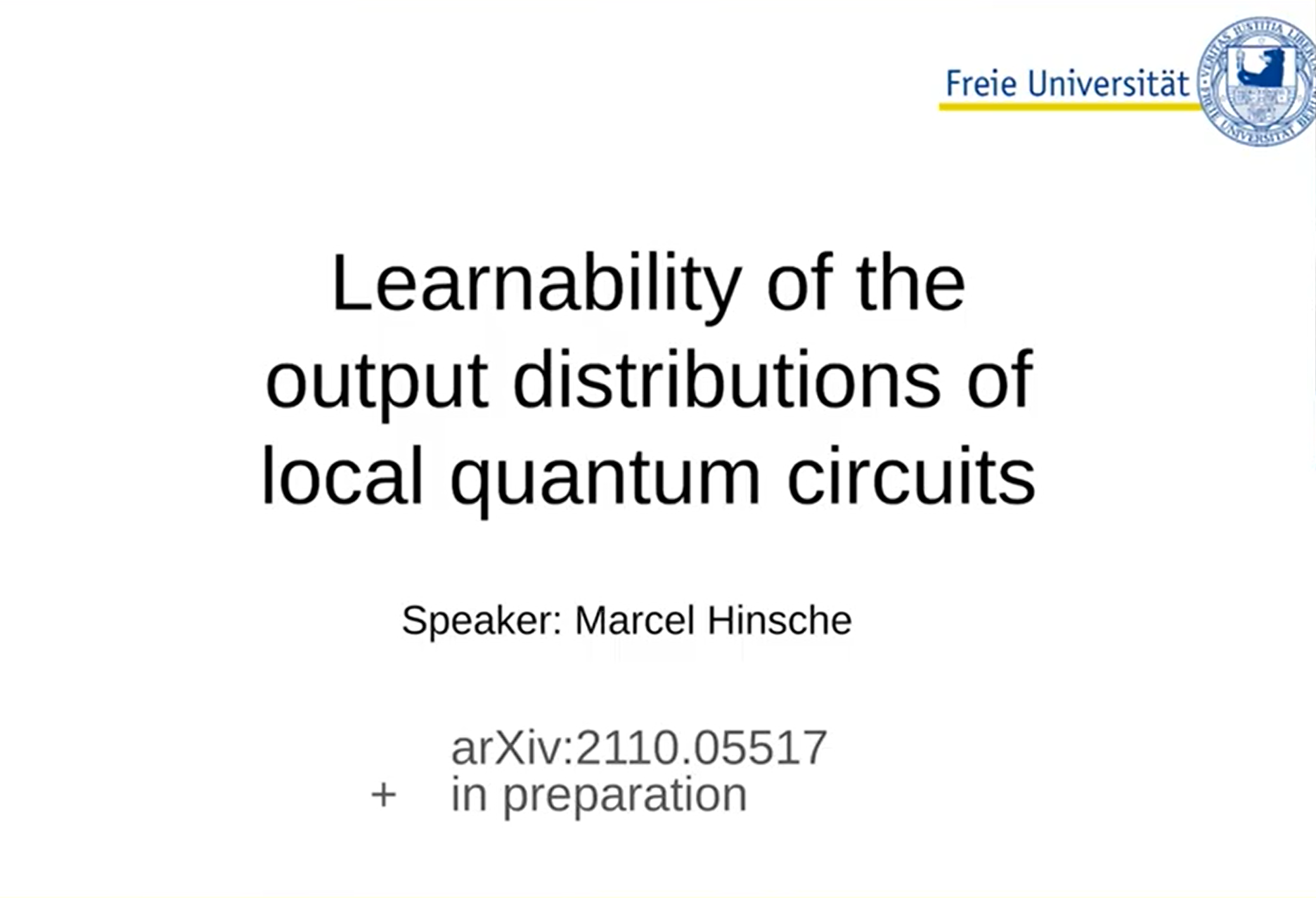
Marcel Hinsche (FU Berlin): Learnability of the output distributions of local quantum circuits25.05.2022
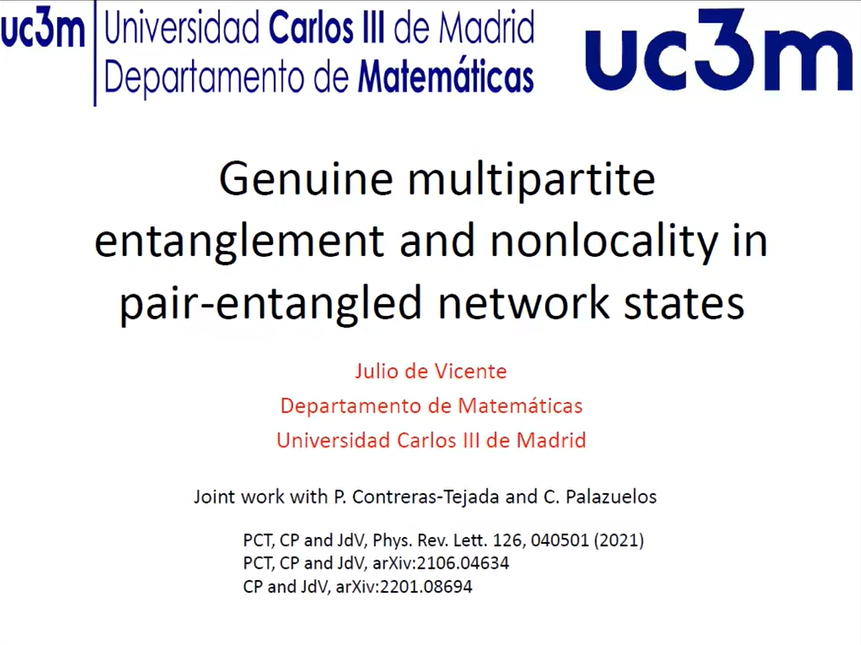
Julio de Vicente: Genuine multipartite entanglement and nonlocality in pair-entangled network states20.04.2022
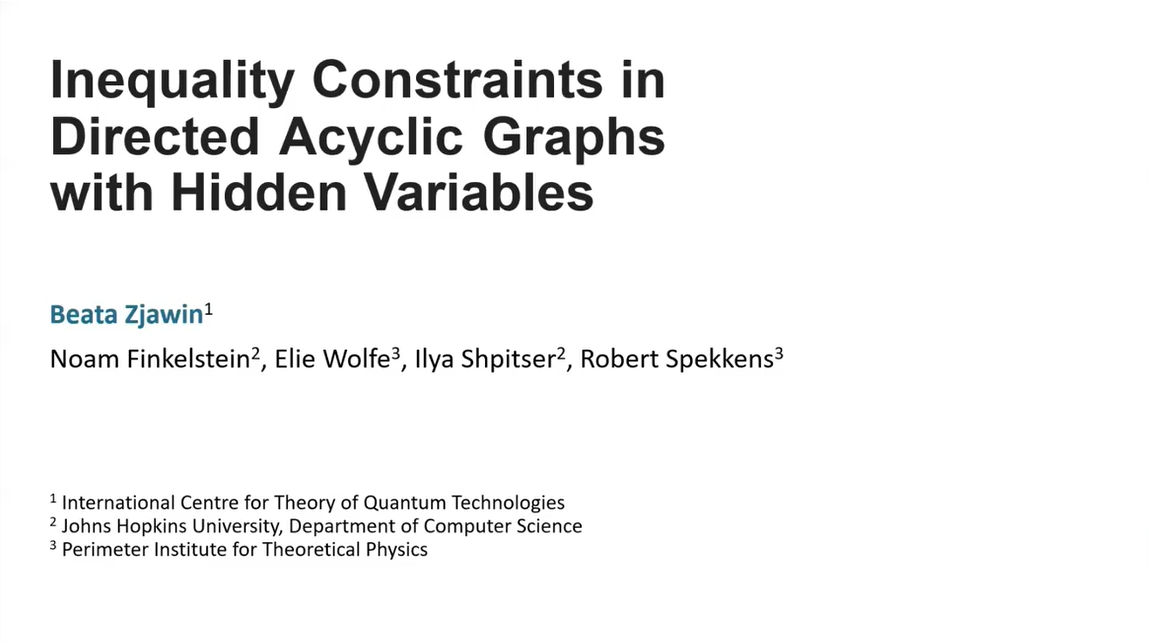
Beata Zjawin (ICTQT): Inequality Constraints in Directed Acyclic Graphs with Hidden Variables02.02.2022
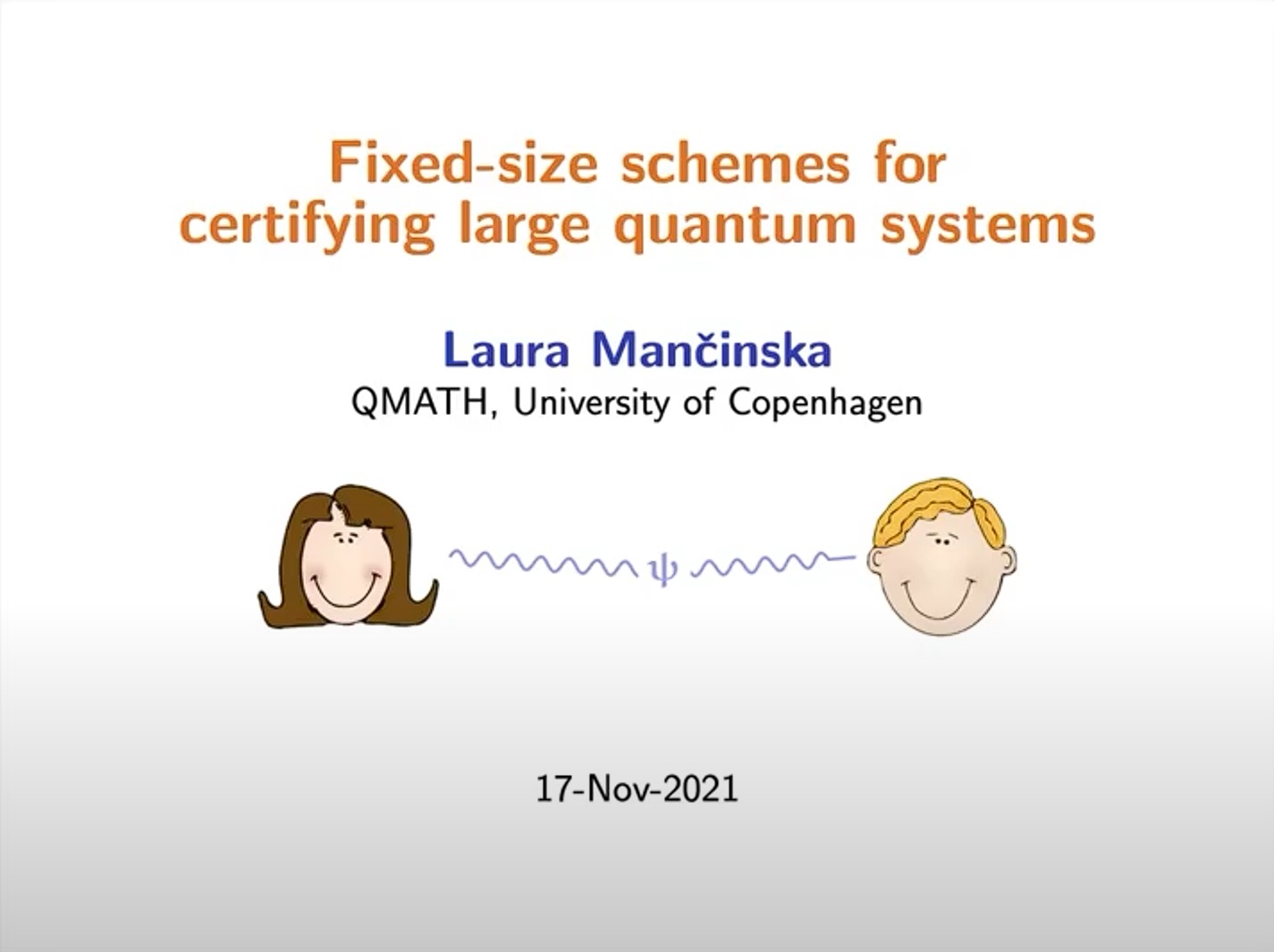
Laura Mancinska (QMATH, Copenhagen): Fixed-size schemes for certification of large quantum systems17-11-2021
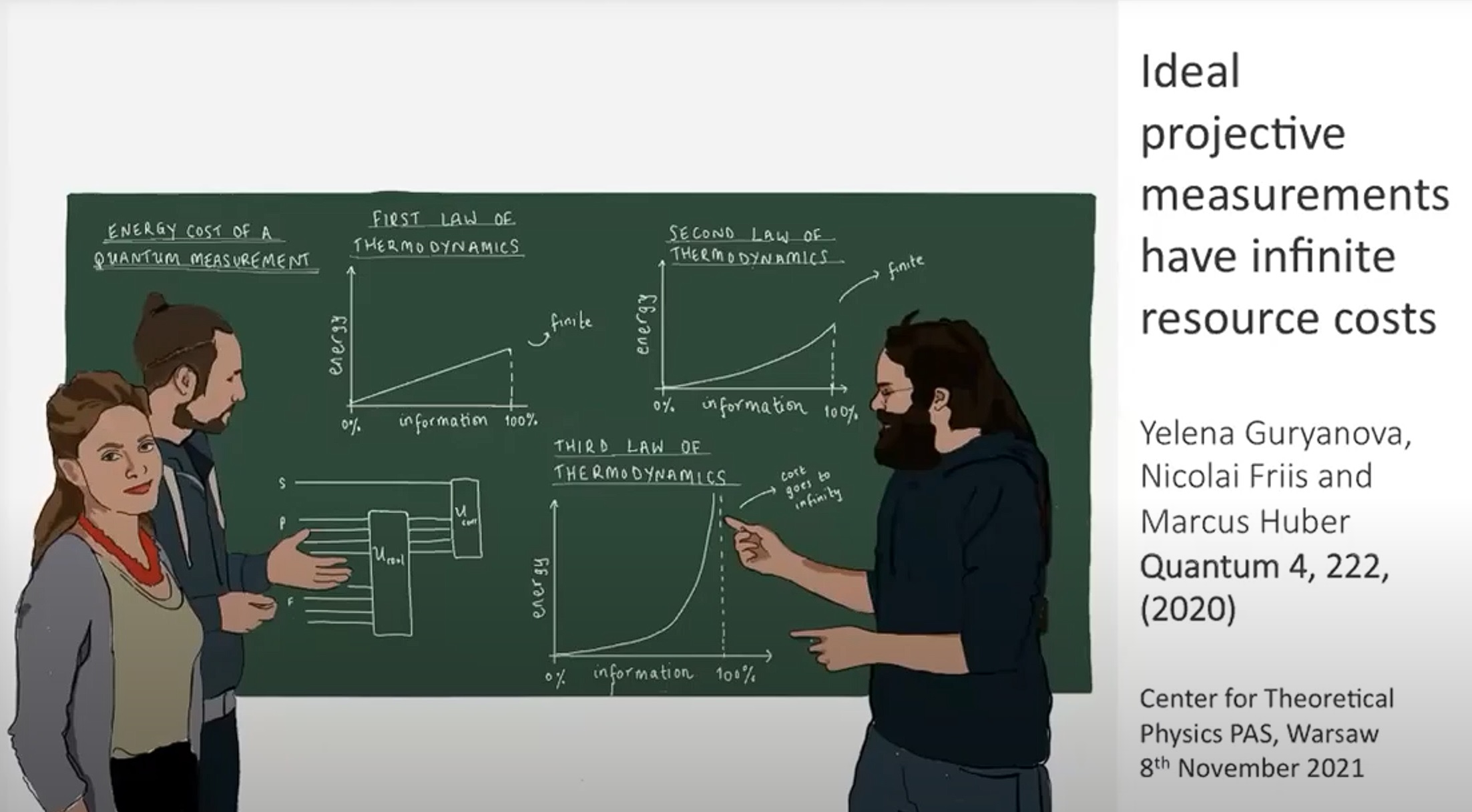
Yelena Guyanova (IQOQI, Vienna): Ideal Projective Measurements Have Infinite Resource Costs10-11-2021
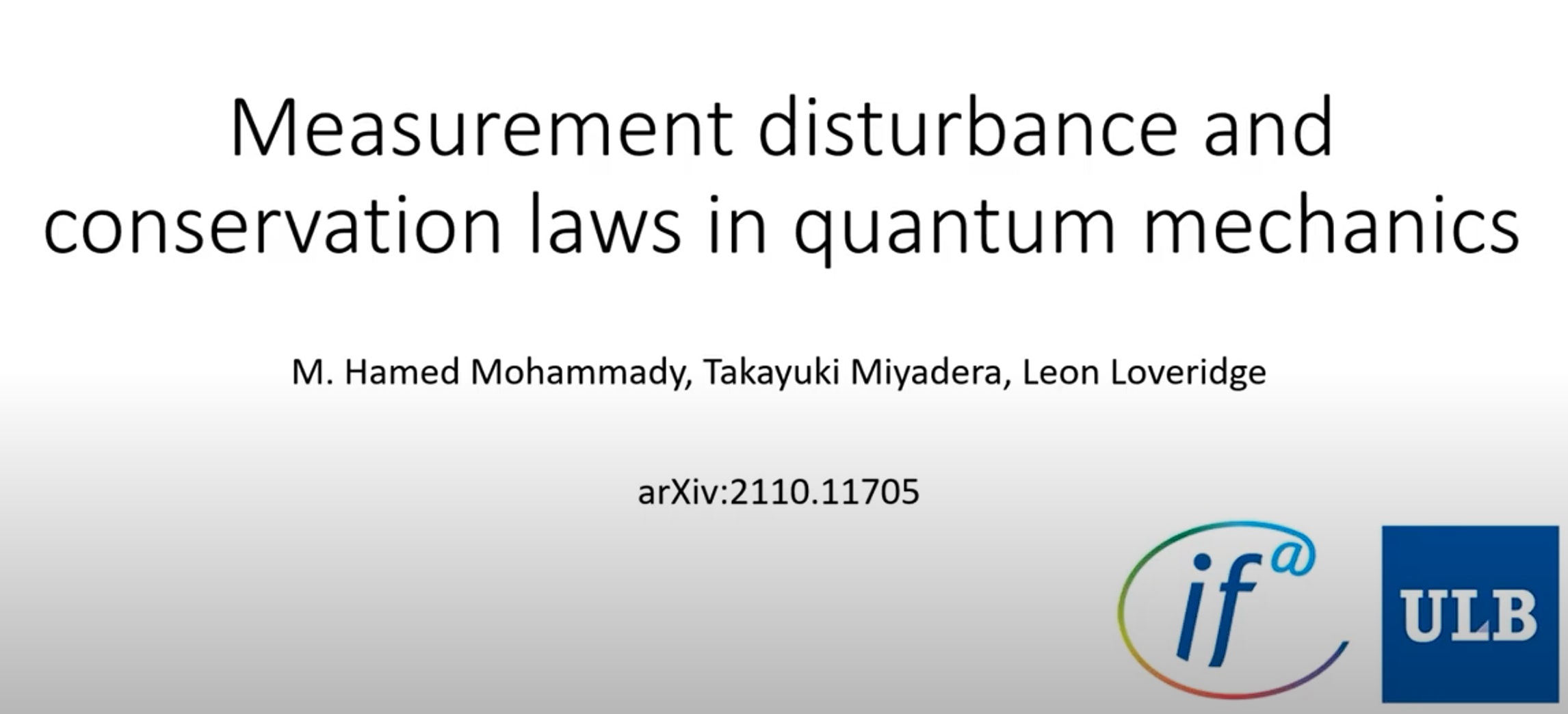
Hamed Mohammady (ULdB): Measurement disturbance and conservation laws in quantum mechanics03-11-2021
Contact
Aleja Lotników 32/46
02-668 Warszawa
Poland
Phone: +48 22 847 09 20
Email: nisq@cft.edu.pl
© 2021 Near-term Quantum Computers Project
